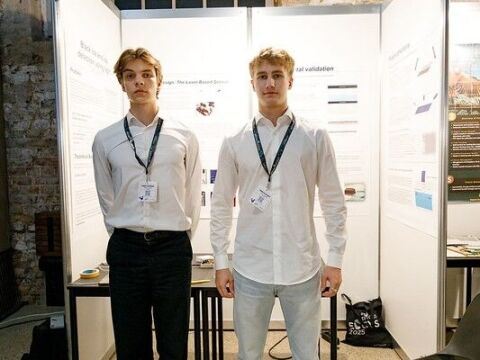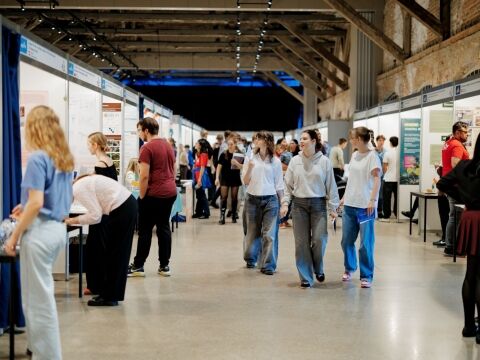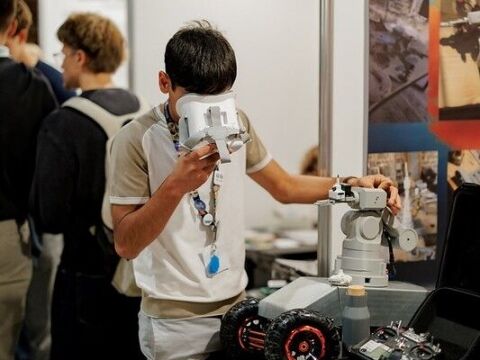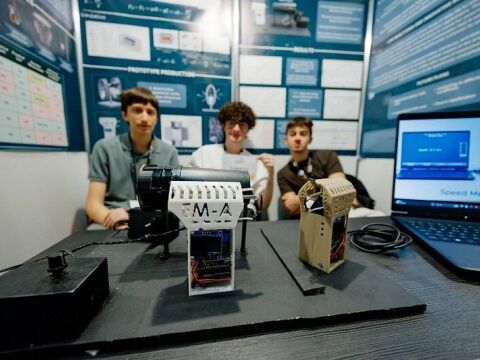About EUCYS
Since 1989, the European Commission has hosted EUCYS – the European Union Contest for Young Scientists – the leading science competition in Europe for young researchers.
In 2025, the 36th edition of EUCYS will take place in Riga, from 15 to 20 September. This prestigious event will bring together approximately 150 young scientists, aged 14 to 20, from nearly 40 countries to present their innovative research projects across various scientific disciplines. EUCYS serves as a platform for fostering collaboration and exchange among young researchers, offering them the opportunity to showcase their work to an esteemed international jury and the public.
EUCYS 2025 Contest Catalogue
The official EUCYS 2025 Contest Catalogue is now available for download!
The catalogue is a valuable guide for contestants, visitors, and anyone interested in learning more about the event.
Download the EUCYS 2025 Catalogue
Who can participate?
EUCYS is open to young scientists aged between 14 and 20 who have won first prize in their respective national science competitions. Eligible projects can be theoretical or experimental and may be conducted individually or in teams of up to three members. Participants must not have completed their first semester of tertiary education. Each country can submit up to three projects, with a maximum of six contestants in total. The selection of participants is coordinated by National Organisers, who nominate the top projects from their national contests for EUCYS.
Participants can enter the contest individually or as a team of up to three students. In the case of team projects, all team members must be present at the contest to ensure a fair and full evaluation by the jury. Each team member must meet the eligibility criteria.
EUCYS is designed to highlight dedication, originality, and scientific curiosity — offering young minds a unique chance to share their research with a global audience and get inspired by their peers.
Photo: Kaspars Teilāns
How are projects evaluated?
An international jury of renowned scientists and industry experts will evaluate all projects through detailed interviews and presentations. The jury looks for genuine scientific thinking, originality, and the personal engagement of the participants.
Evaluation criteria:
- Scientific quality and depth of research
- Originality and creativity
- Clarity and reasoning behind the work
- Skill and care in conducting the study
- Quality of the presentation, both written and verbal
All projects are assessed fairly and equally, regardless of the scientific field. The Jury’s decisions are final and based on consensus after multiple rounds of review.



